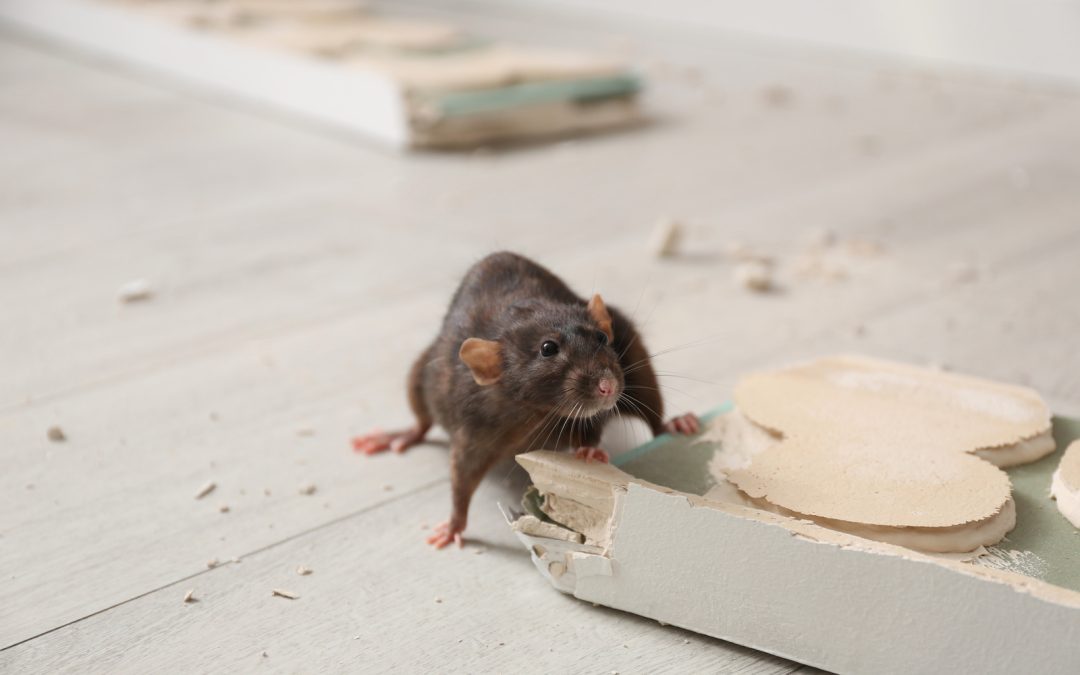In the rapidly evolving world of technology, AI-based pest control reporting has emerged as a groundbreaking development, promising to transform the way we manage pest issues. With an increasing demand for efficient and effective pest control solutions, AI-based systems are gradually taking center stage in both residential and commercial settings. In this article, well explore how AI is reshaping pest control reporting, its benefits, and its potential impact on the industry.

The Rise of AI in Pest Control
The integration of Artificial Intelligence (AI) in pest control has been nothing short of revolutionary. Traditional pest control methods often relied heavily on human intervention and manual reporting, which could be time-consuming and prone to errors. However, with the advent of AI, these processes are becoming more streamlined and accurate.
AI-based systems use advanced algorithms to detect and report pest activities in real-time. They can analyze patterns, predict infestations, and provide detailed reports that help pest control professionals make informed decisions. This level of precision and efficiency is unparalleled, making AI-based pest control reporting a game-changer in the industry.
How AI-based Pest Control Reporting Works
AI-based pest control systems utilize a combination of sensors, cameras, and machine learning algorithms to monitor environments for pest activity. These systems can identify specific pest species, track their movements, and assess the level of infestation. The data collected is then processed and compiled into comprehensive reports that provide actionable insights.
For instance, in packaging facilities where rodent infestations are common, AI-based systems can detect the presence of rodents and alert facility managers in real-time. This proactive approach not only prevents potential damage but also ensures a safer and more hygienic environment.
Advantages of AI-based Pest Control Reporting
The benefits of AI-based pest control reporting are manifold. Firstly, it offers unparalleled accuracy. Traditional methods often rely on visual inspections, which can be subjective and inconsistent. In contrast, AI systems provide objective data-driven insights that are both reliable and precise.
Moreover, AI-based reporting enhances efficiency. By automating the detection and reporting process, these systems save time and resources, allowing pest control professionals to focus on implementing solutions rather than gathering data. This is especially beneficial in large-scale operations where speed and accuracy are critical.
Additionally, AI-based systems can predict pest trends and patterns, enabling proactive measures rather than reactive ones. This predictive capability is crucial in preventing infestations before they become severe, ultimately saving businesses significant costs in damage control.
Impact on the Pest Control Industry
As AI-based pest control reporting becomes more widespread, its impact on the industry is becoming increasingly apparent. Companies that adopt AI technology are gaining a competitive edge by offering more efficient and effective services. This is driving a shift in customer expectations, with more clients demanding AI-integrated solutions.
Furthermore, AI technology is paving the way for innovation in pest control products and services. Companies are now developing smart pest traps, automated reporting systems, and integrated pest management solutions that leverage AI's capabilities. This is fostering a culture of innovation that is propelling the industry forward.
To delve deeper into the innovative aspect, businesses are increasingly integrating AI with smart technology for pest management, creating systems that are not only reactive but also predictive.
Challenges and Considerations
Despite its many advantages, there are challenges associated with AI-based pest control reporting. One of the primary concerns is the initial cost of implementing these systems. Advanced technology often requires a significant upfront investment, which may deter smaller companies from adopting it.
Additionally, there are concerns about data privacy and security. As AI systems collect and process vast amounts of data, ensuring that this information is protected is paramount. Companies must implement robust data protection measures to maintain client trust and compliance with regulations.
Moreover, there is a learning curve associated with using AI-based systems. Pest control professionals need to be adequately trained to understand and interpret AI-generated reports. This requires ongoing education and support to ensure the technology is used to its full potential.

The Future of AI-based Pest Control Reporting
The future of AI-based pest control reporting looks promising. As technology continues to advance, we can expect even more sophisticated systems that offer enhanced capabilities. The integration of AI with other emerging technologies, such as the Internet of Things (IoT) and cloud computing, will further revolutionize the industry.
For instance, cloud-integrated systems are already being explored to provide seamless reporting and data access across multiple locations. This is particularly beneficial for companies with expansive operations, such as those in the food processing and warehousing sectors. Learn more about essential pest control strategies for food processing environments.
Furthermore, AI's predictive capabilities will continue to evolve, allowing for even more accurate forecasting of pest trends and behaviors. This will enable businesses to implement more effective preventative measures, reducing the risk of infestations and their associated costs.
FAQ Section
1. How does AI-based pest control reporting work? AI-based pest control systems use sensors and cameras to monitor environments for pest activity. They collect data, analyze it using algorithms, and generate reports that provide insights into pest behaviors and trends.
2. What are the benefits of AI-based pest control reporting? The benefits include increased accuracy, efficiency, and the ability to predict pest trends. AI-based systems automate the detection and reporting process, saving time and resources while providing reliable data-driven insights.
3. What challenges are associated with AI-based pest control reporting? Challenges include the initial cost of implementation, concerns about data privacy and security, and the need for training to effectively use and interpret AI-generated reports.
This article contains affiliate links. We may earn a commission at no extra cost to you.
